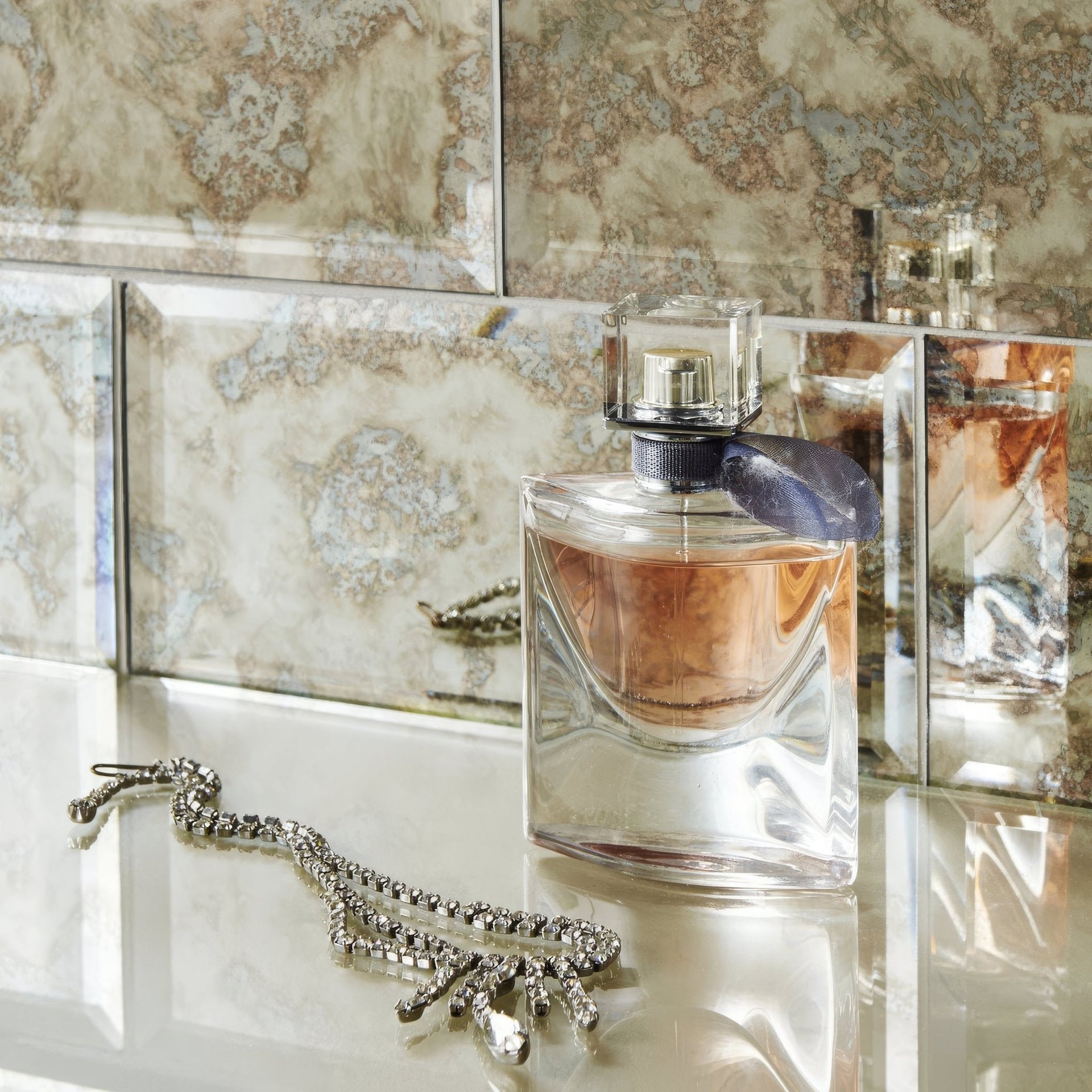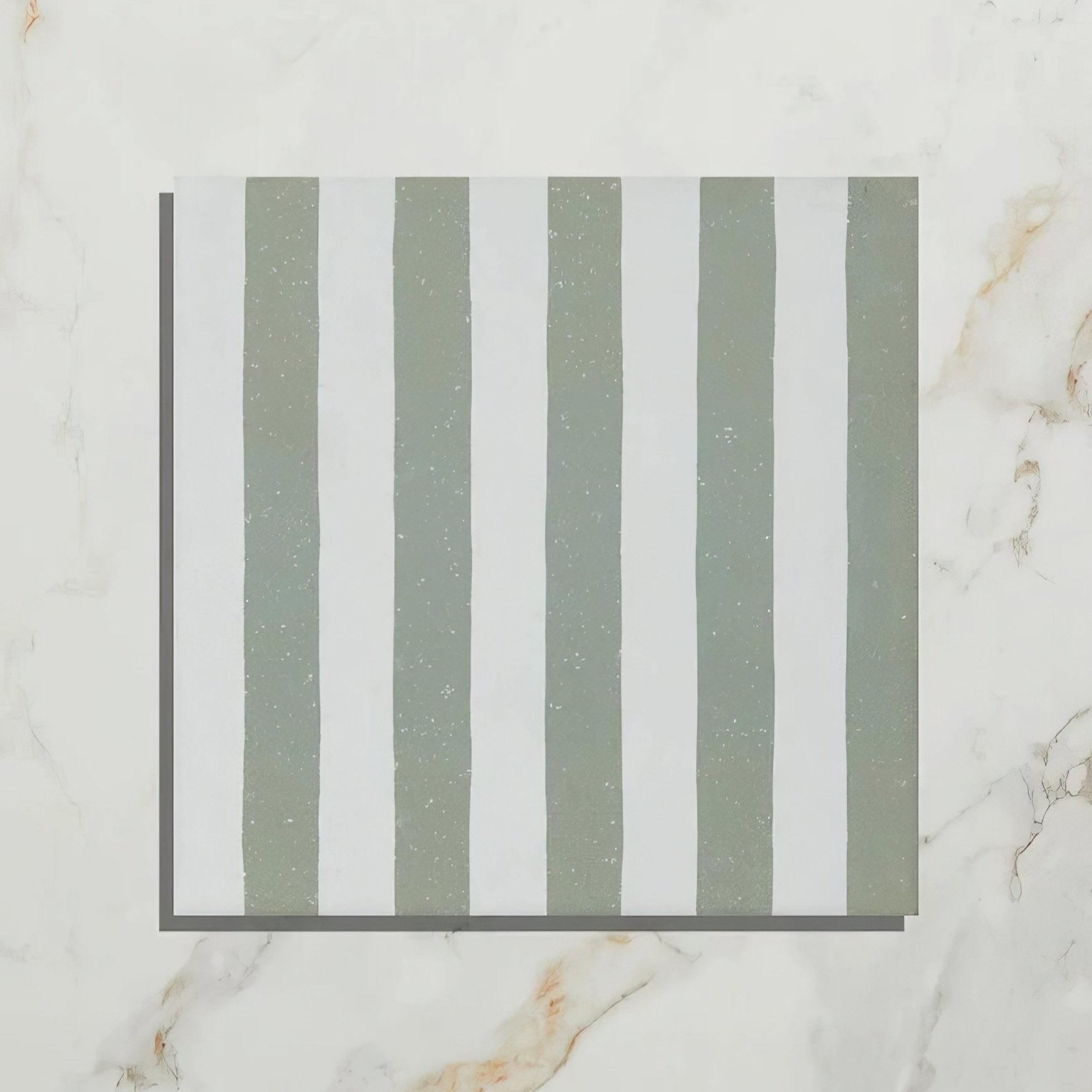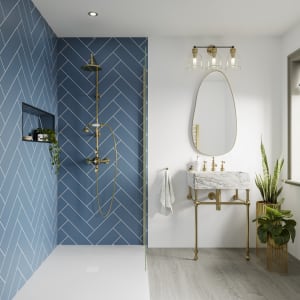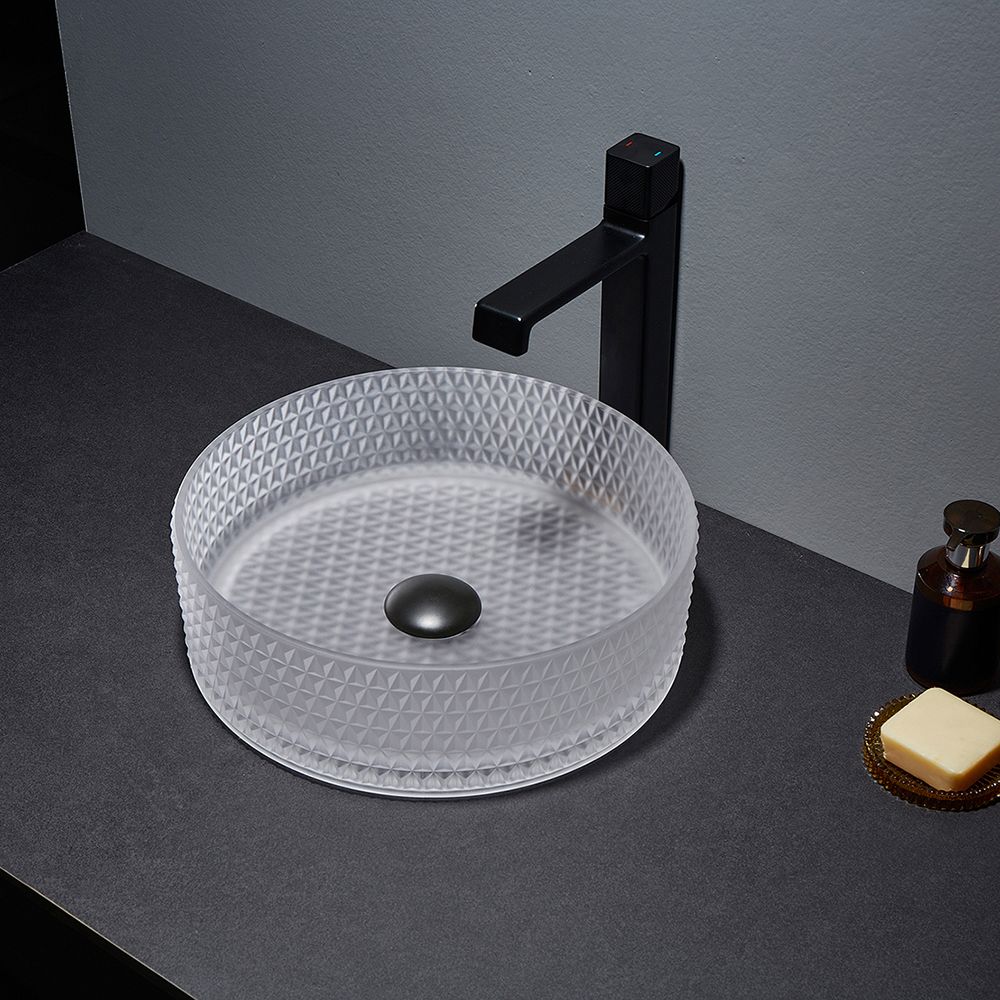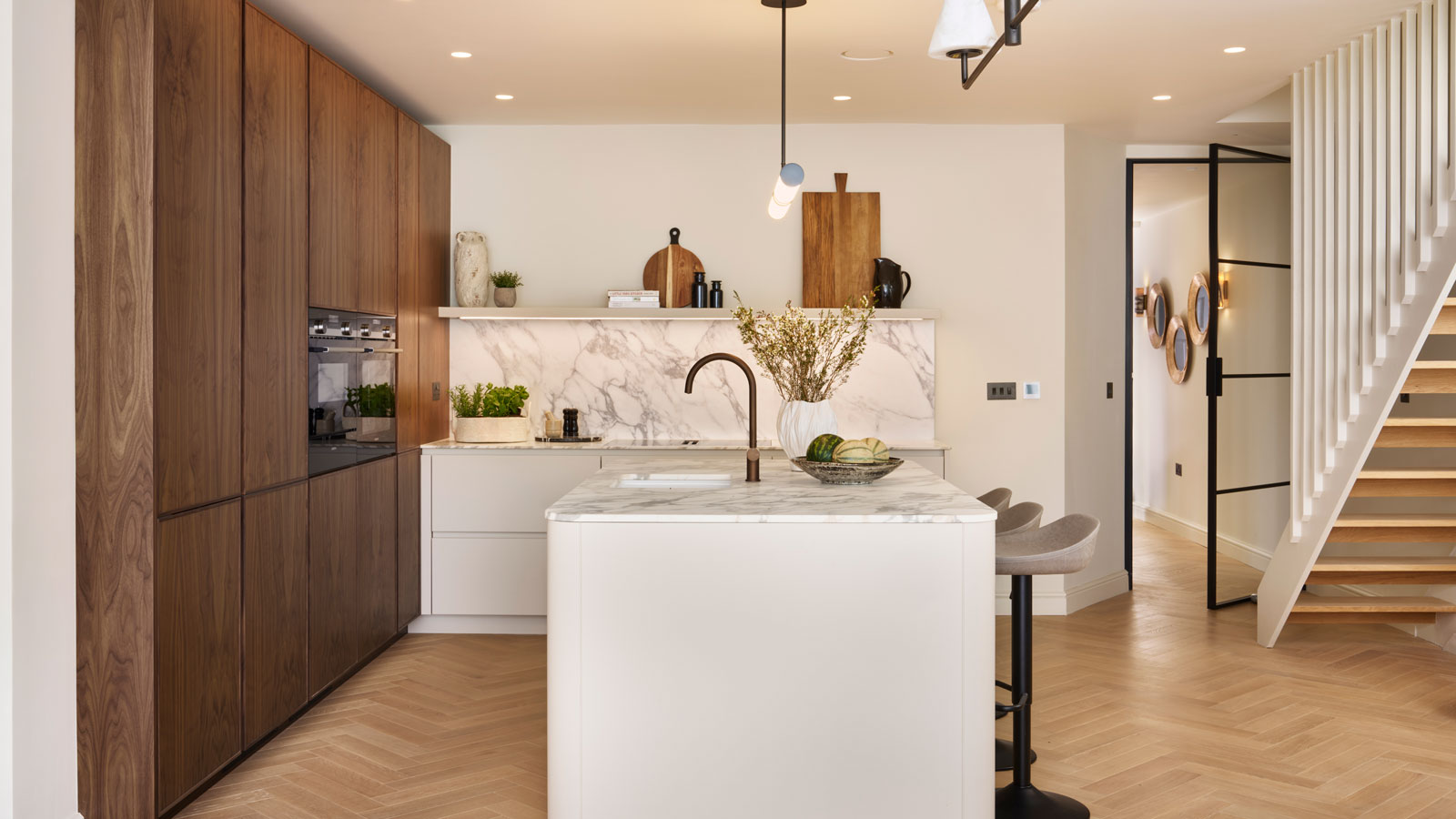Bathroom renovation costs — how much to budget for a makeover
As well as calculating the costs of new items such as sinks and showers, budgeting for bathroom renovation costs involves thinking of the bigger picture. Here's what you need to consider
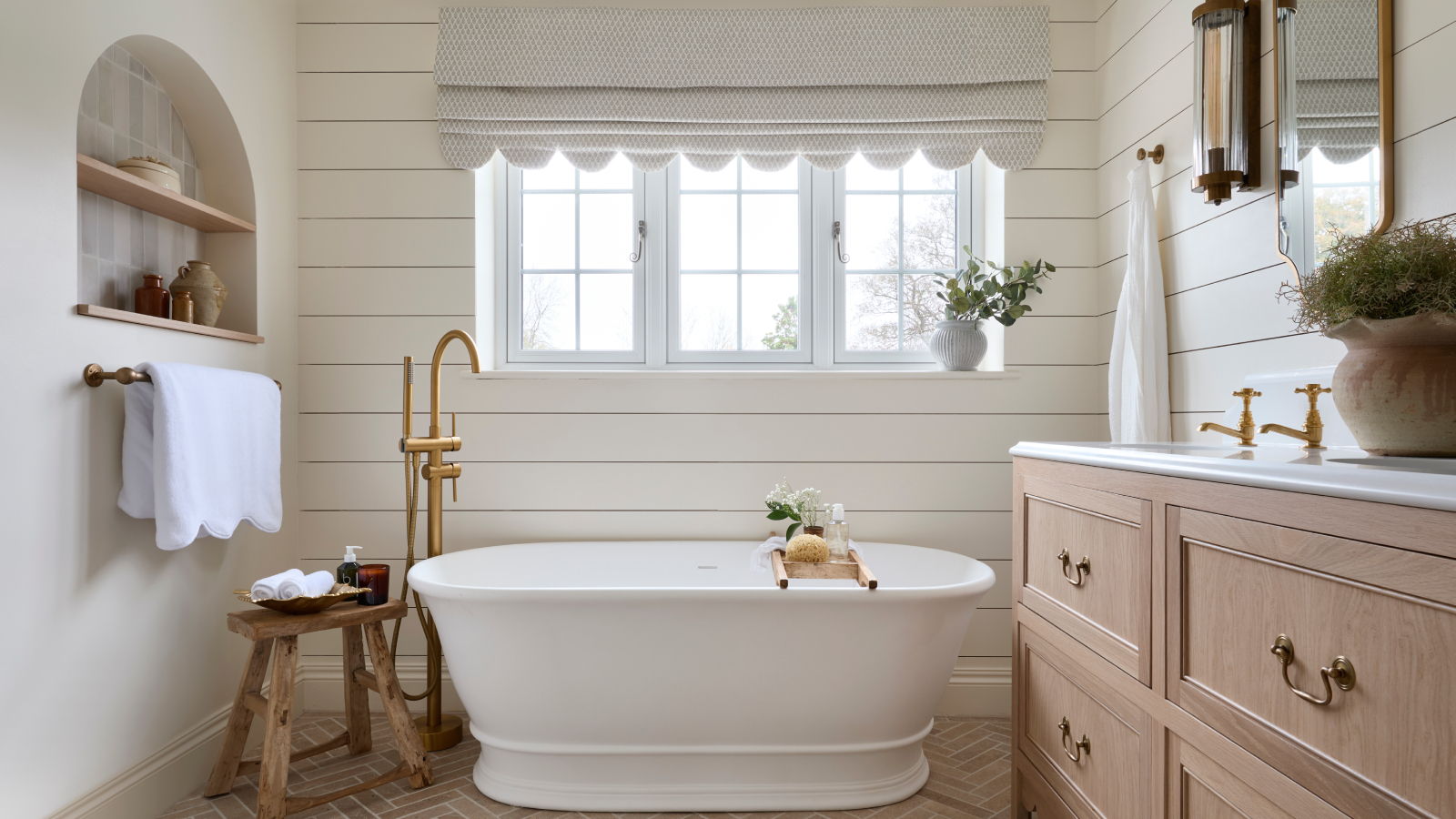
Although putting an exact figure on your bathroom renovation costs is influenced by a number of different elements – including how extravagant your bathroom renovation ideas are – it's still possible to work out a potential budget for your plans.
Key to understanding the final figure is being able to understand what you can expect to pay for each piece of the renovation puzzle. From taps and tiles to sanitaryware and relocating soil pipes, each item will have an associated material and labour cost that will mount up as the project proceeds.
So, while everyone's total will be different, this guide is here to help you understand what you need to get a quote for, how much you can expect to pay, and offer suggestions on how you can help ensure your bathroom renovation costs don't escalate out of control.
Factors that will influence your bathroom renovation costs

Need more advice or inspiration for your project? Get two free tickets to the Homebuilding & Renovating Show
When it comes to renovating a bathroom, your final costs will depend on a number of influencing factors, including:
- The size of your bathroom
- The amount of renovation work needed
- The quality of finish, fixtures and fittings you want
- The spec of materials you choose
- How much DIY you are willing to take on
- The plumbing system you already have in place
- Whether or not you will require a new boiler
- If you are moving the location of sanitaryware
- The need to relocate a soil pipe
- Whether your walls will need re-plastering
- Will floor reinforcements be required?
- Are you changing the way you heat the room?
While it can be easy enough to look at costs for new items, when preparing your bathroom renovation costs budget it's always wise to make sure you've factored in both the before and after say the experts.
"Many homeowners forget to consider the preparation costs associated with home renovation and new bathrooms," says Leigh Price, co-director of Real Tiles & Bathrooms.
"These ‘hidden costs’ (or the things you can’t see when the renovation is complete) involve skip hire, ripping out the existing bathroom, waterproofing the room, plastering and painting a bathroom etc. and depending on the scale of the space, this can soon add up," he warns.
Bring your dream home to life with expert advice, how to guides and design inspiration. Sign up for our newsletter and get two free tickets to a Homebuilding & Renovating Show near you.
What are the average bathroom renovation costs
Exact figures to one side, having parameters to work within is always helpful when starting on any new project, which is why we asked the experts 'what are the average bathroom renovation costs you can expect to pay?'
"If looking at new bathrooms costs alone, a bathroom suite could start from as little as around £250. But this is just the start," advises senior quantity surveyor and estimator, Tim Phillips.
"If you’re planning a complete bathroom renovation, to include removal/disposal and replacement of the suite, radiator, floor and wall tiles, plus new lighting, extractor fan and decorating, you can expect to pay on average around £7,000."
That said, if you are happy to tackle certain jobs on a DIY basis, this could come in much lower. Equally, larger spaces, those that need more renovation work and those that are using luxury products could see prices range from £7,000 - £15,000+.
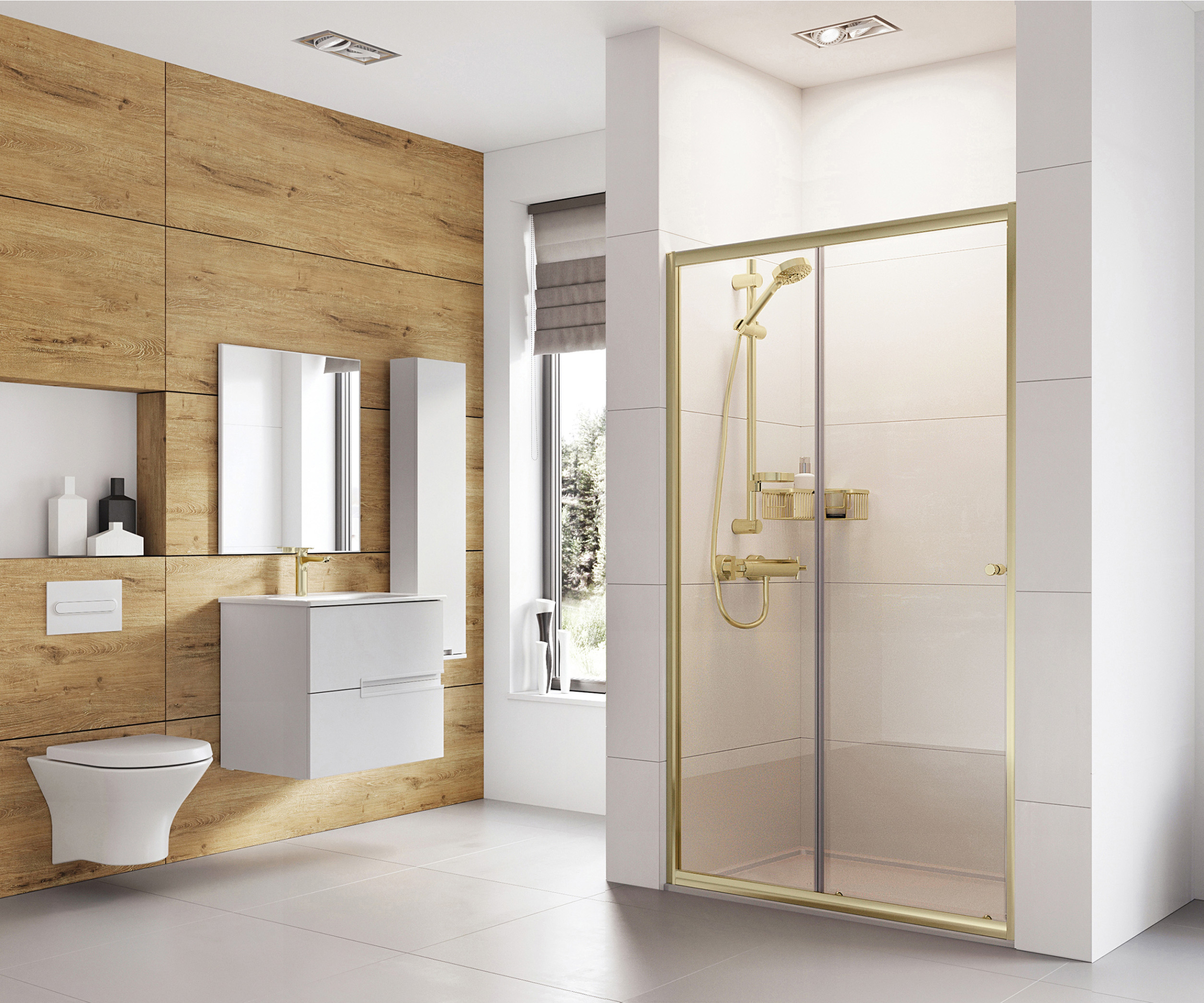

Tim Phillips is an experienced senior quantity surveyor and estimator and has worked in the construction industry for over 35 years. For the past 13 years, Tim has worked on a freelance basis, whilst managing his rental property portfolio. He has extensive experience of undertaking his own full-scale house renovations. He is also a speaker and expert at the Homebuilding & Renovating Shows.
How much does it cost to install a bathroom?
As well as the cost for new items, it's important to factor in the cost of fitting a bathroom when working out your final bathroom renovation costs. "For removing and installing a typical suite to the same layout, you can expect to pay approx. £1,250 to £1,500," says Tim Phillips.
As a starting point, a plumber should be able to carry out a simply like-for-like bathroom retrofit in two or three days, as well as removing the old one – this would cost around £1,000.
Our top tip for saving on costs in a bathroom renovation? Take care of the removal of old sanitary ware etc. yourself rather than paying someone else to do it. This will mean you only have to account for installation costs, not removal.
"In total, installation costs theoretically should sit at around £1,900," adds James Roberts, director at Sanctuary Bathrooms. "However, you also need to be aware of how your location within the UK plus the demand for fitters in your area can affect this.
"Londoners, where consumer prices are 20% higher on average than anywhere else in the country, can expect the price of labour to be on the higher end of our estimates," advises James.
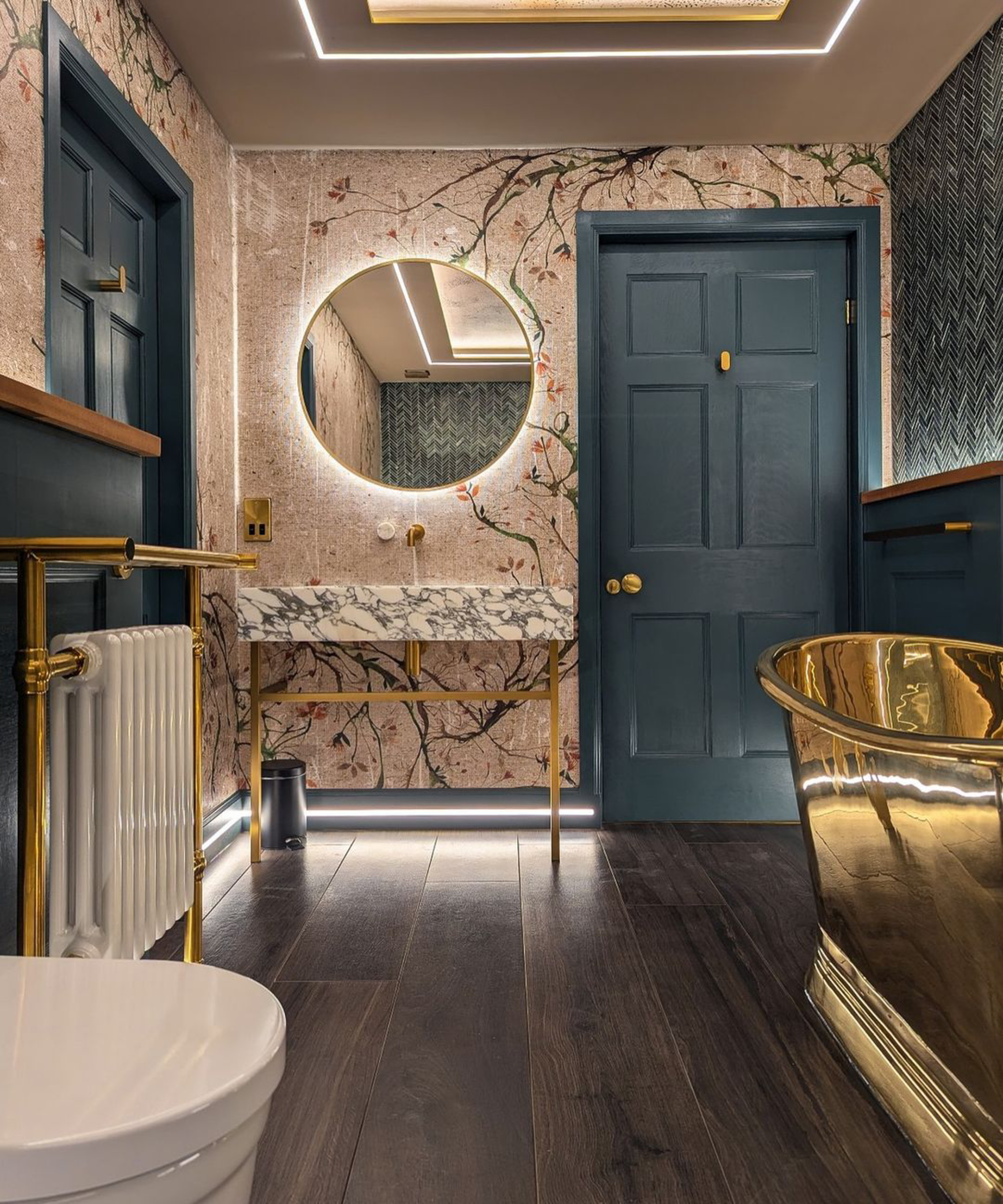

James Roberts is one of three directors at Sanctuary Bathrooms, working alongside his father and brother. He joined the company in 2007 having previously studied to become a plumber.
Fixtures, fittings and finishes costs
While the work involved in preparing your space ready for a new bathroom can form a significant part of your budget, understanding how much you can, or want to spend on fixtures, fittings and finishes can also dictate how much your bathroom renovation costs can amount to.
Tiling your bathroom renovation
The cost to tile a bathroom depends both on the types of tiles you choose as well as the size of the space you are tiling.
"There is some disparity when it comes to the price of tiles, with slate tiles being between £40 and £50 per m² compared to glass tiles which tend to cost £110 to £160 per m²," says James Roberts.
However, if you feel your DIY skills are up to the task of fitting your own bathroom tiling ideas, you can also make some signifiant savings, as "a tiler is likely to charge you about £50 per m²," says James.
It is hard to pinpoint how long it takes to tile a bathroom, but the average is somewhere between one and five days. This will depend on how much of the room you are having tiled and the size of the room, as well as the tiles you have chosen.
Tile options for your bathroom renovation
Baths can add extra to your bathroom renovation costs
If your bathroom design ideas include a bath, the cost will depend on the material it is made from and whether it is a standard size or a more unusual size. The very cheapest baths are usually made from thin acrylic and come ready to be built in to a frame, which can then be tiled or finished with a purpose-made bath panel which you will have to buy separately.
Cheap acrylic baths cost from around £80, but can be flimsy and easily crack, so do give them a thorough check before buying. Those made from thicker, fibreglass-reinforced acrylic are of a much better quality though, with the added benefit that acrylic also keeps the water warm for longer than steel.
Steel baths, such as this Kaldewei 313 Eurowa Eco 1700 X 700Mm Steel Bath from Robert Dyas, are perfect for those on a budget who want durability without the hefty price tag. They tend to be more hardwearing than very low-cost acrylic baths and often cost little, if any, more – starting from around £120.
However, once you start looking at cast iron, timber, composite and stone materials typically seen in freestanding bath ideas, the prices rocket. Prices for these baths start from around £600, but can reach prices of up to £3,000.
This Milano Florence Modern Double-Ended Fluted Freestanding Bath from the Big Bathroom Shop would be a perfect option if you're looking for a modern option for a larger bathroom renovation.
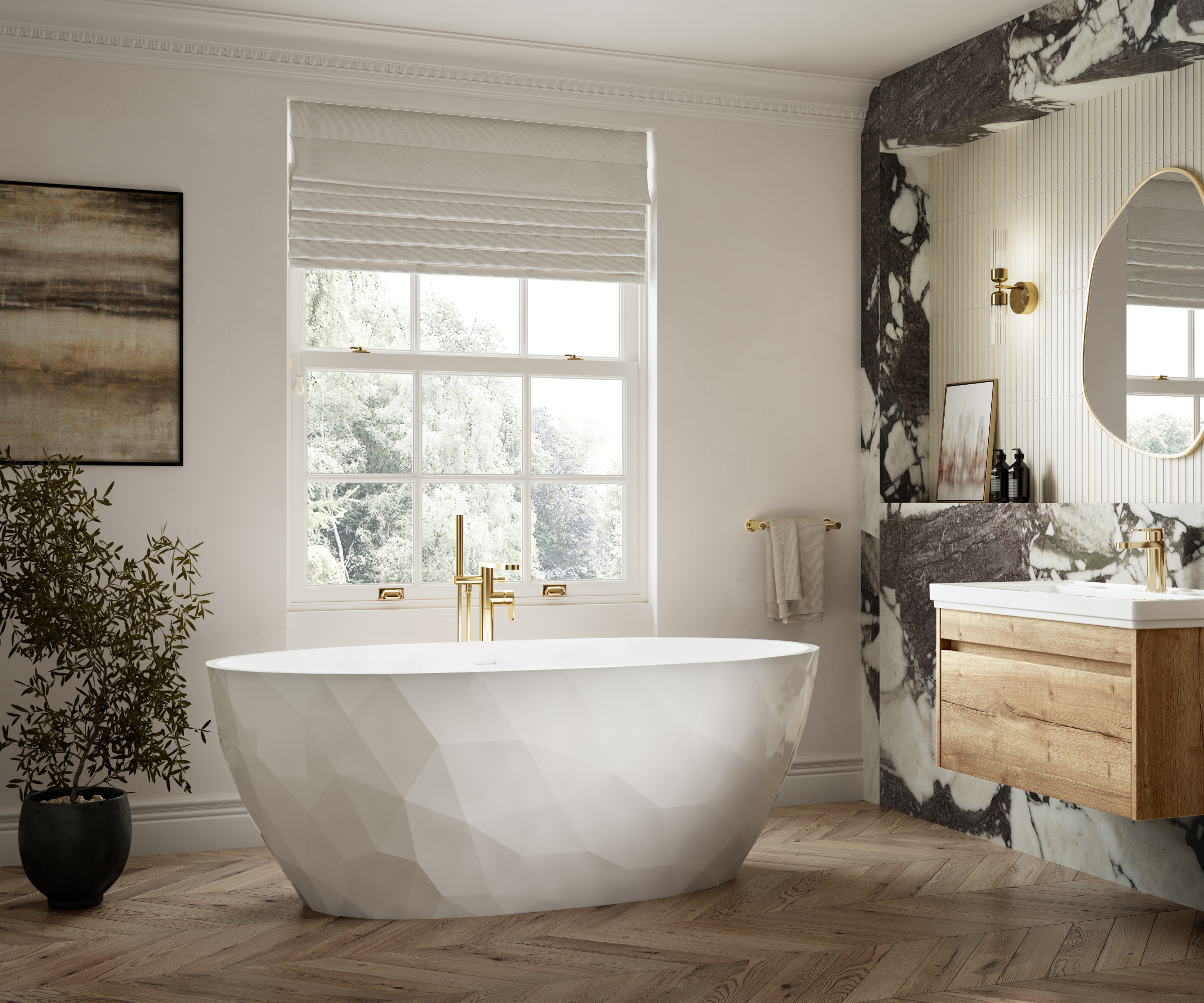
Showers, enclosures and wet room considerations
If you're wondering how to choose the best type of shower for your bathroom renovation, then electric showers are the cheapest option and are ideal for those looking to carry out a quick, low cost bathroom update.
However, electric showers have a connection to just the mains cold water supply and heat water on demand. This means that they struggle to reach the level of power provided by power showers and those using stored hot water, although choosing one with a higher kilowatt rating will help. On the plus side, they are economic to run, installation is straightforward and they start at around £50.
Bath/shower mixers are another good option for those looking to keep their bathroom renovation costs low, with prices from £50. Other choices include thermostatic showers and power showers which will cost anywhere from £125-£150 upwards. This Milano Ayanna Modern Thermostatic Bar Shower Valve with Round Shower Head and Hand shower in Brushed Brass for example, would add a touch of glamour to your plans.
But, these are just the basic shower types. Digital showers, shower towers, columns and cabins all offer a luxury showering experience, with a multitude of sprays and jets – at a cost of course, from £250 upwards.
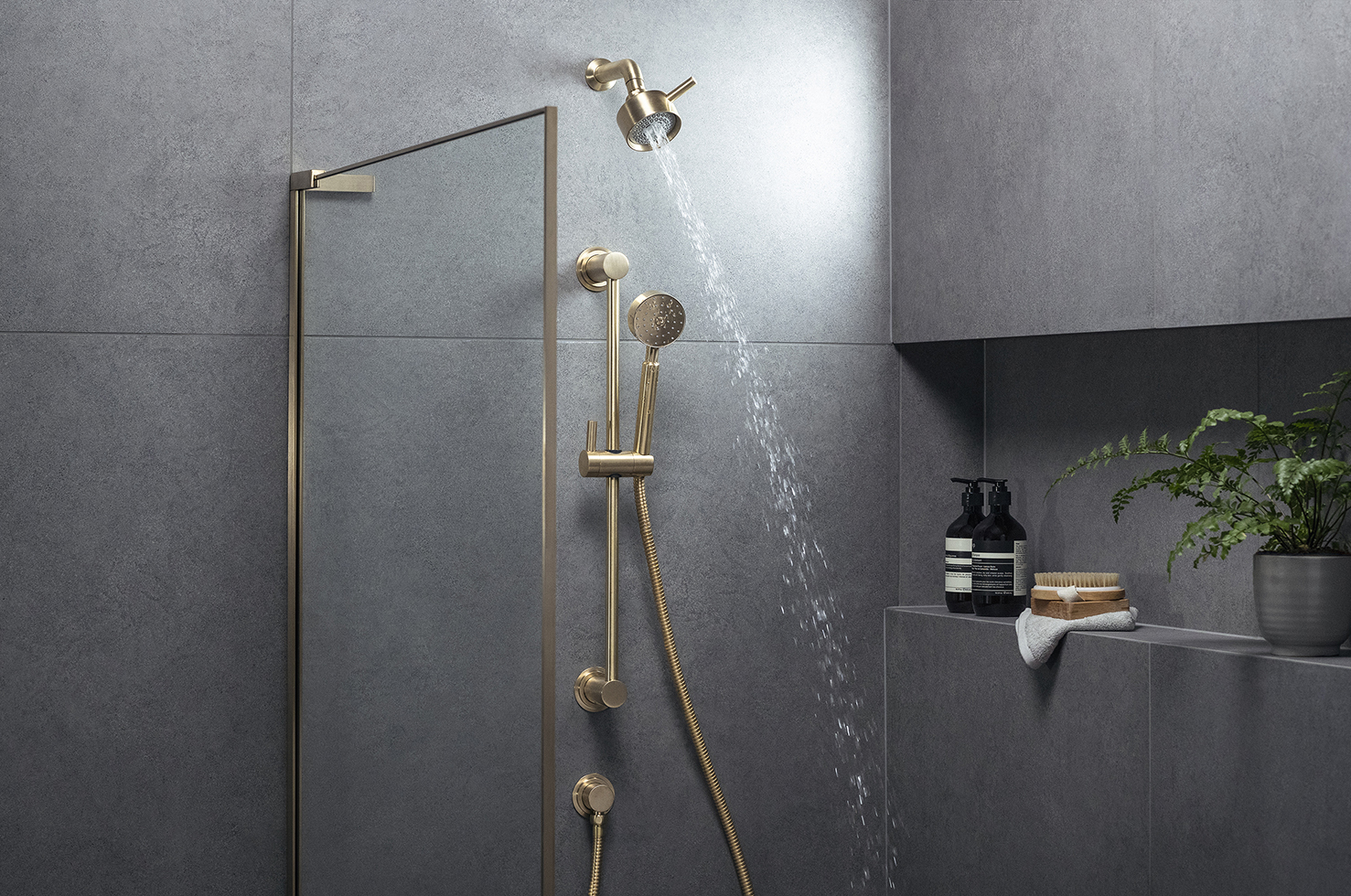
Of course, as well as a shower, you'll need a shower enclosure. Basic shower enclosures featuring one glass side panel and a door, or a quadrant enclosure with double doors, can cost as little as £100. Factor in a minimum of £60 for a shower tray, but if you're weighing up a wet room or walk in shower, a complete ‘wet room‘ style enclosure, complete with walk-in tray and frameless shower screen will cost from £550. A frameless fixed enclosure, with no door, will start at around £200.
Wet room kits can also be purchased. These come complete with everything you need to form a platform, drainage and waterproofing equipment (but excluding tiles) and cost around £500-£600.
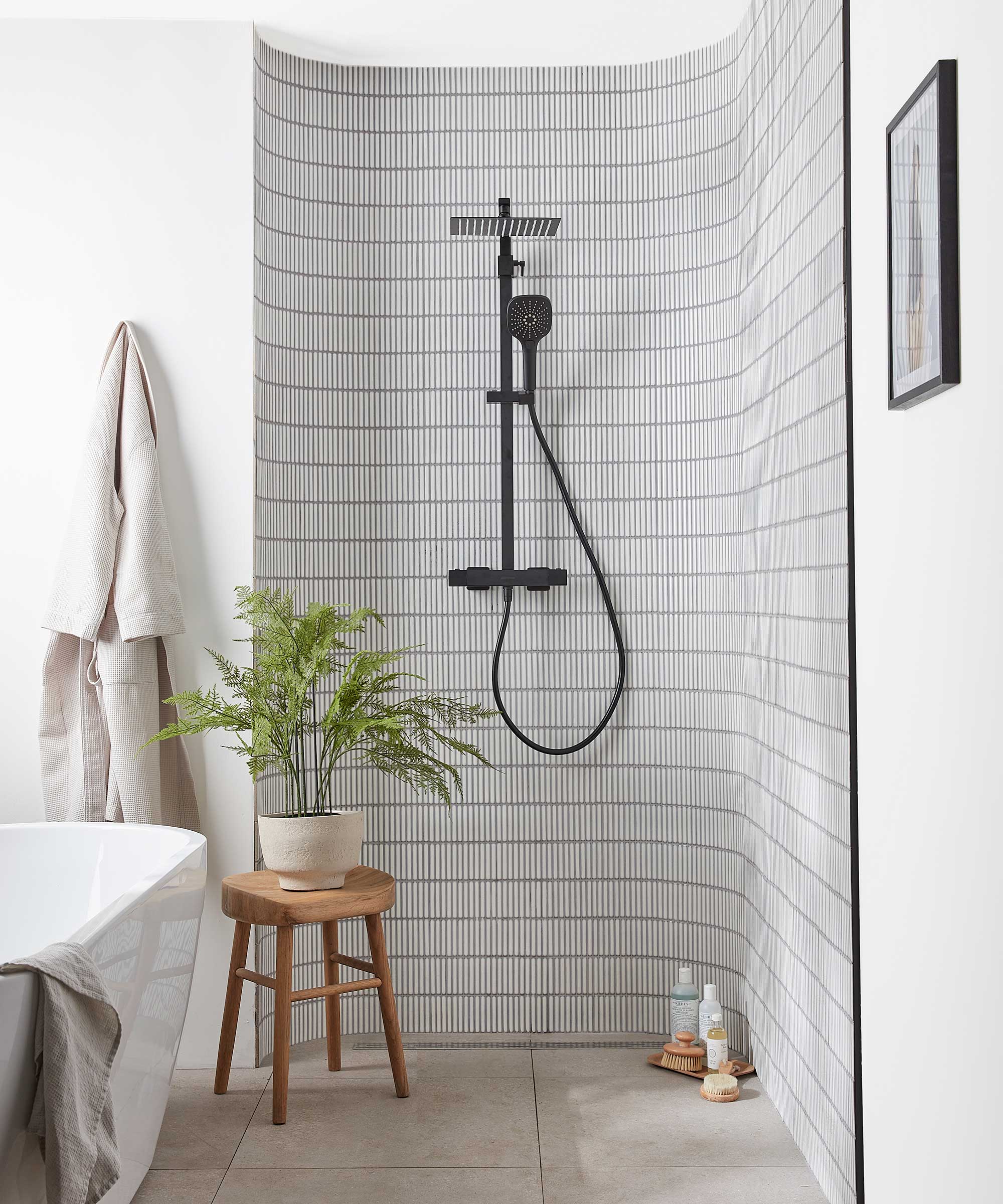
Budgeting for basins and taps in your bathroom renovation costs
When choosing the right types of bathroom sink for your bathroom renovation, it's again about balancing space, budget and style.
From as little as £50 you can pick up a ceramic pedestal basins. These are also convenient in that all pipework can easily be concealed behind the pedestal.
But, if you are after a more contemporary basin for your bathroom remodel ideas, consider a semi-pedestal or wall-hung basin. These basins cost from around £60. Remember that a wall hung basin will require a stud wall to be constructed from which to hang it and conceal the pipework.
Basins designed to sit in or on top of a vanity unit (including freestanding basins and semi-recessed models) allow for useful storage beneath. These basins cost from £90, but remember to factor in the cost of the unit they sit on or in, too.
While most basins are ceramic, glass, metal and stone are all options but cost more. The most common basin size is 550mm x 400mm.
Just as with so many bathroom fittings, the cost of bathroom taps also varies massively and will be affected by your choice of basin and bath.
If it is bathrooms on a budget that you want, then the very cheapest type of bathroom taps are pillar taps (taps with a separate tap for hot and for cold). They cost from £30 per pair.
Mixer taps that have separate controls for hot and cold flow tend to be next up the scale, from around £45, with monobloc mixers (where flow and temperature are both controlled from one lever) usually at the top, from £50 up to the low £100s.
However, counter-to basins, for example, will require wall-mounted taps or those set into a vanity unit, while freestanding baths will need wall or floor-mounted taps. These can be more costly than simple mixer taps located on the bath or basin, both to buy and fit.
Choosing a toilet for your bathroom renovation
There are several different types of toilet and each comes with a price tag all of its own. And, if you're placing your toilet in a different location in your bathroom renovation plans, be aware that moving soil stacks can be particularly expensive, adding a few hundred pounds to your plumbing installation costs.
Looking at new toilet costs in general, floor-mounted, low-level WCs are the cheapest option, costing from around £50. Traditional-style high-level toilets are another option, as are more modern-looking wall-mounted WCs – here the cistern and pipework is typically concealed within a frame in a studwall.
Or, if bathroom innovations are on the agenda, you may also be considering shower toilets, in which case be prepared to set aside a little more again for your bathroom renovation costs.
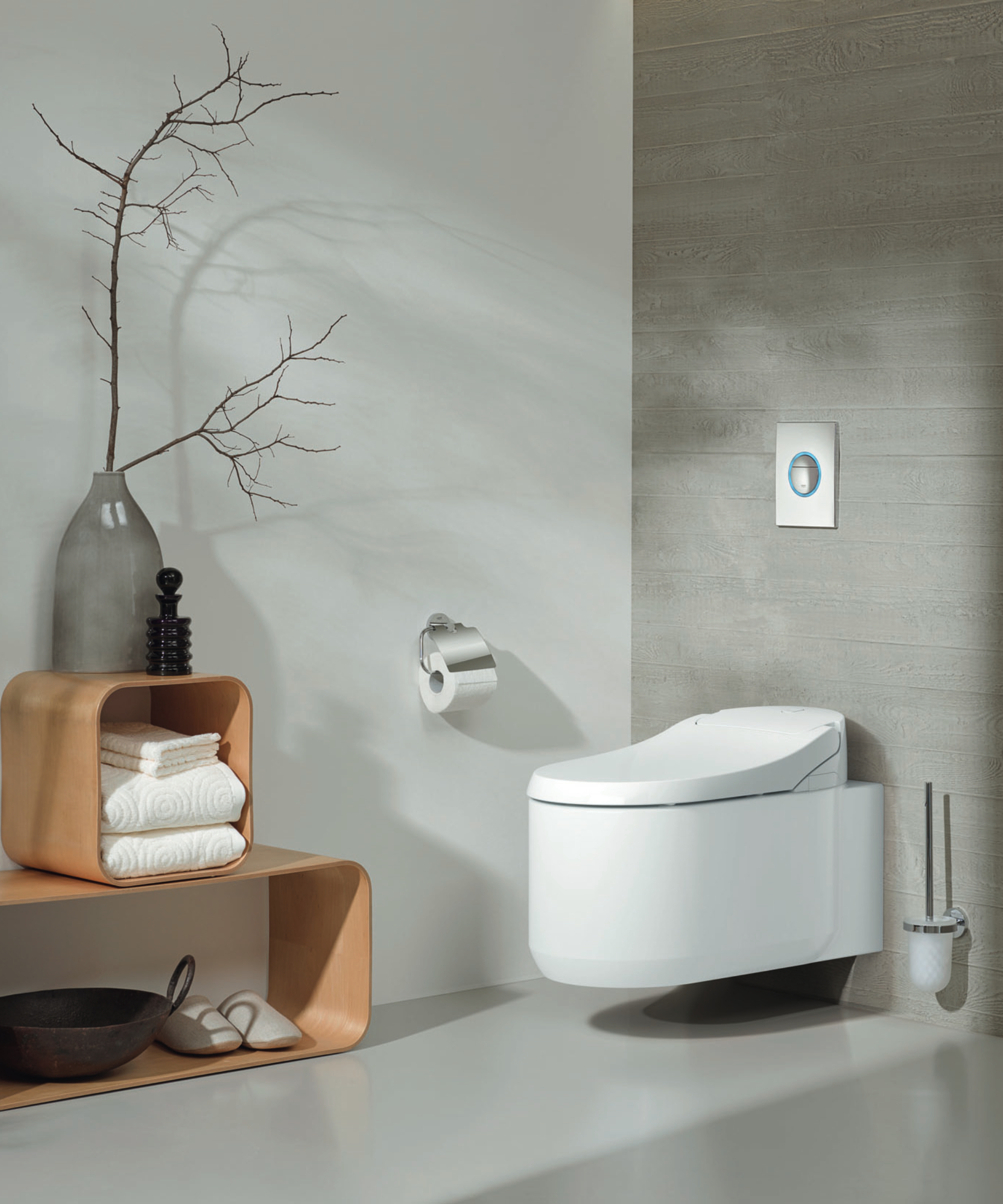
Factoring in heating & lighting
Let's also not forget you'll need to research heating a bathroom and bathroom lighting ideas in order to reach your final figure. As rewiring a bathroom is a job best left to the professionals, you'll need to factor in costs for an electrician as well as choosing items such as bathroom lights with mirrors.
If you just need a new ceiling light fitted for example, you may only need to pay the average hourly rate for an electrician in your area. But, if you're chasing out walls to add in new wall lights, shaver sockets or demister pads, be prepared for these costs to increase.
It may be that as part of your renovation you're also considering switching to underfloor heating – after all nothing beats toasty toes when stepping out of a bath or shower.
Electric underfloor heating installation can be an easier option if you're only considering it for your bathroom. Pair it with an electric towel rail that can still help you dry your towels in the summer, even when the heating is off. Head to The Radiator Outlet which has a great range of electric towel rails to choose from.
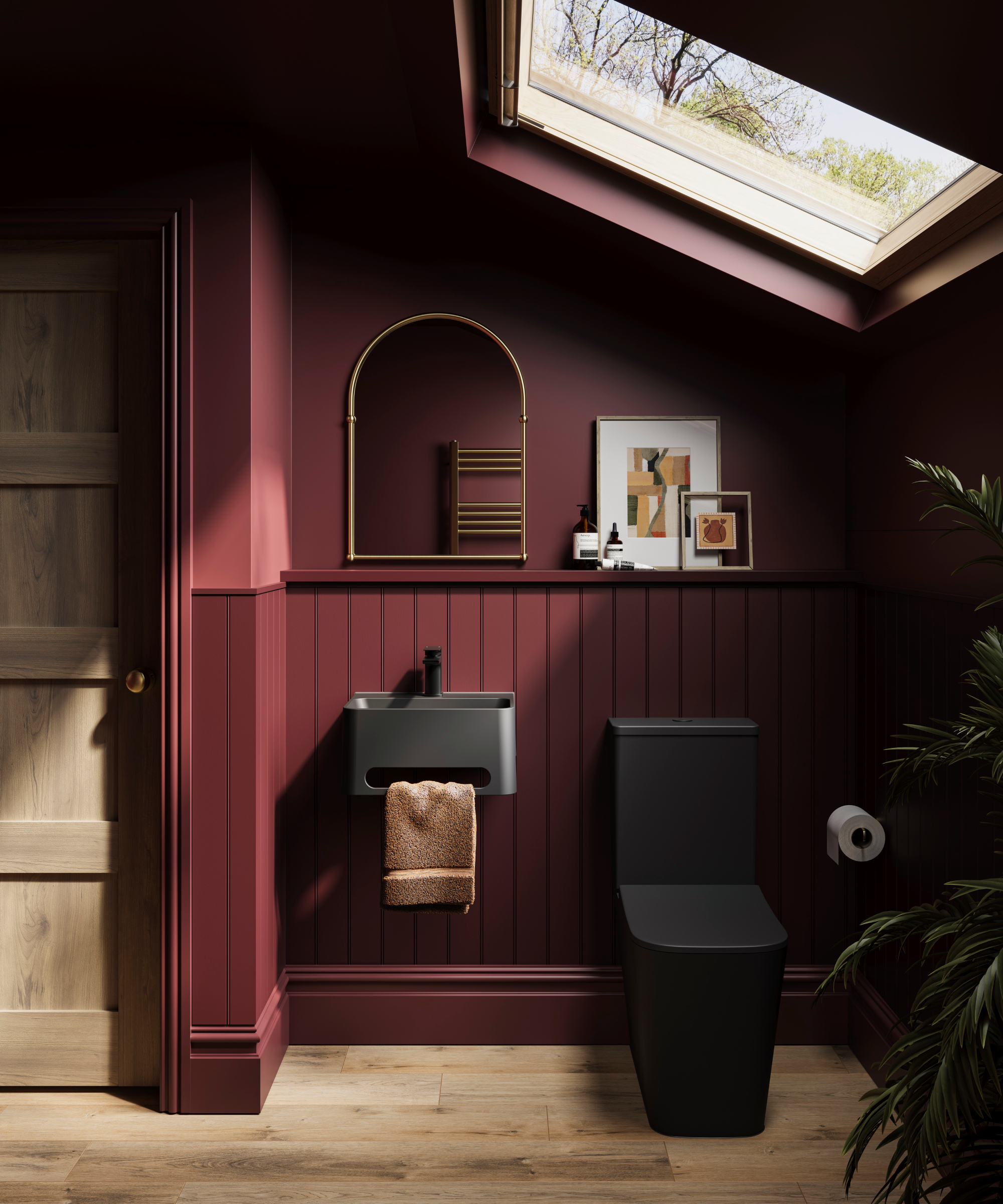
Furniture – choose wisely to help stretch your budget and storage space
And finally, the issue of bathroom furniture will also need to be addressed as part of your bathroom renovation costs. If you're seeking small bathroom ideas, choosing options such as wall mounted vanity units with built-in storage will help provide somewhere to store items, but increase the sense of space. Or, if space isn't an issue, you may choose instead to opt for a fully fitted bathroom suite with oodles of storage and stylish features.
However, as with all of your bathroom fixtures and fittings, how much you spend on bathroom furniture will ultimately come down to your personal taste and how much you have to spend overall.
What is important is to make sure that your investment is spent on making sure that the fabric of your bathroom – the plumbing, wall finishes, electrics, lighting and heating – are all finished to a high standard so that whether you're choosing luxury finishes, or having to opt for something more modest for now, the groundwork you put in place will give you the best basis for any future renovations too.
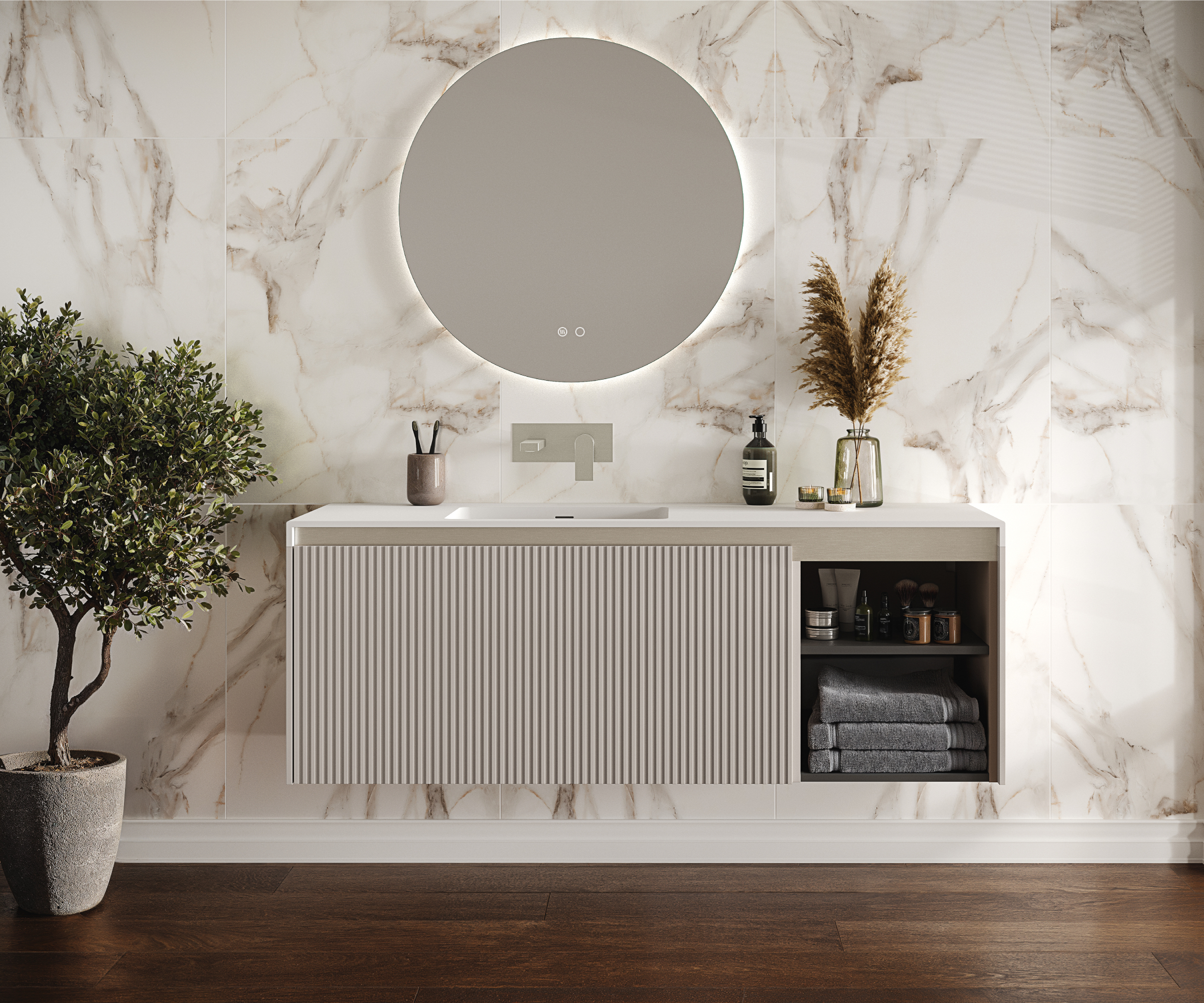
Updating your bathroom can be an exciting part of your house renovation plans, but it usually comes with a few risks. Find out the bathroom renovation mistakes one home renovator is keen to ever avoid making again, and when planning your new space, make sure you steer clear of these bathroom layout mistakes too.
Natasha was Homebuilding & Renovating’s Associate Content Editor and was a member of the Homebuilding team for over two decades. In her role on Homebuilding & Renovating she imparted her knowledge on a wide range of renovation topics, from window condensation to renovating bathrooms, to removing walls and adding an extension. She continues to write for Homebuilding on these topics, and more. An experienced journalist and renovation expert, she also writes for a number of other homes titles, including Homes & Gardens and Ideal Homes. Over the years Natasha has renovated and carried out a side extension to a Victorian terrace. She is currently living in the rural Edwardian cottage she renovated and extended on a largely DIY basis, living on site for the duration of the project.
